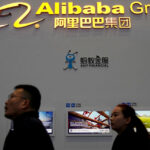Receive free US foreign policy updates
We’ll send you a myFT Daily Digest email rounding up the latest US foreign policy news every morning.
Vietnam will upgrade its relationship with the US to its highest level, matching that with China and bringing the communist country and former foe closer into Washington’s orbit in the face of Beijing’s growing assertiveness in the region.
The US will sign a “comprehensive strategic partnership” with the south-east Asian country, according to US officials, when President Joe Biden arrives in Hanoi on Sunday from New Delhi, where he attended the G20 summit.
The symbolic but important designation of the partnership, which follows years of lobbying by Washington, would raise the US by two levels to the top status in Vietnam’s bilateral ties hierarchy. It is one reserved only for China, Russia, India and, as of last year, South Korea. Vietnam had long avoided the move for fear of upsetting Beijing.
The step is “more than words”, said Jon Finer, the deputy US national security adviser who announced the strategic partnership as Biden was flying to Hanoi. “In a system like Vietnam, this is a signal to their entire government, their entire bureaucracy, about the depth of co-operation and alignment with another country.”
Biden arrives in Vietnam after a G20 summit where the US and other western allies were forced to make compromises on their condemnation of Russia in the bloc’s joint statement, as part of Washington’s growing effort to find more common ground with developing nations.
The US and its allies have prioritised outreach to the so-called Global South to help build a worldwide consensus against Russia’s war against Ukraine and as part of a growing international rivalry with Beijing, Moscow’s most important foreign partner.
Similarly, the US views developing countries in Asia as crucial to countering China’s growing ambitions in the Indo-Pacific. Vietnam is regarded as a frontline nation facing China’s growing ambitions in the South China Sea, where Beijing has made sweeping claims of sovereignty to the alarm of many of its neighbours.
Biden skipped the Association of Southeast Asian Nations and east Asia summits in Jakarta before the G20 meeting in favour of the Vietnam trip, in a bid to show the importance America places on its relationship with Hanoi.
The elevation of US-Vietnam ties comes nearly half a century after the end of the Vietnam war, which was followed by years of mutual distrust. Following the victory of the Communist party in 1975, Washington placed a trade embargo on Vietnam that was maintained until 1994.
The upgraded partnership is as much about Chinese mis-steps as it is about US persistence, said Peter Mumford, a south-east Asia analyst for Eurasia Group.
“There’s been some strategic self-harm by China,” Mumford said, citing a step-up in intimidation of Vietnamese vessels in the South China Sea as one example. “This is an unusual and significant step for Vietnam and it is a sign of how strong Hanoi’s desire is to counterbalance ties with China.”
Beijing’s pressure campaign has already pushed the Philippines closer to the US, with Manila allowing America access to four more of the country’s military bases earlier this year.
Vietnam’s move is likely to trigger disquiet in Beijing. China had dispatched a top official to Hanoi earlier in the week at short notice ahead of Biden’s scheduled visit. The Chinese Communist party’s international department head Liu Jianchao met Nguyen Phu Trong, the general secretary of the Communist party of Vietnam, and both agreed to “consolidate political mutual trust” during the visit.
“This is a decisive step into the US orbit,” said Simon Tay, chair of the Singapore Institute of International Affairs. However, despite angst about China, Vietnam would seek to remain neutral between the two superpowers and has been broadening its ties with other nations, not just the US, he added. Hanoi has indicated it will also boost ties with Australia, Singapore, Indonesia and Japan.
As well as having security implications such as potential defence co-operation, the new US status also has economic importance. It allows both countries to work on further boosting trade and market opportunities, especially in crucial industries such as semiconductors.
Since the 1990s, Vietnam’s economy has transitioned from a centralised, controlled economy to a more open and capitalist model, and the US is its largest export market.
The most recent boom in trade between Vietnam and the US has been driven by companies including Dell, Google, Microsoft and Apple expanding or setting up in the south-east Asian country to diversify their supply chains — in particular away from China.
Big US technology and manufacturing companies, including semiconductor groups, are expected to attend a business meeting on Monday as Vietnam seeks more high-tech and other investment from the US.







